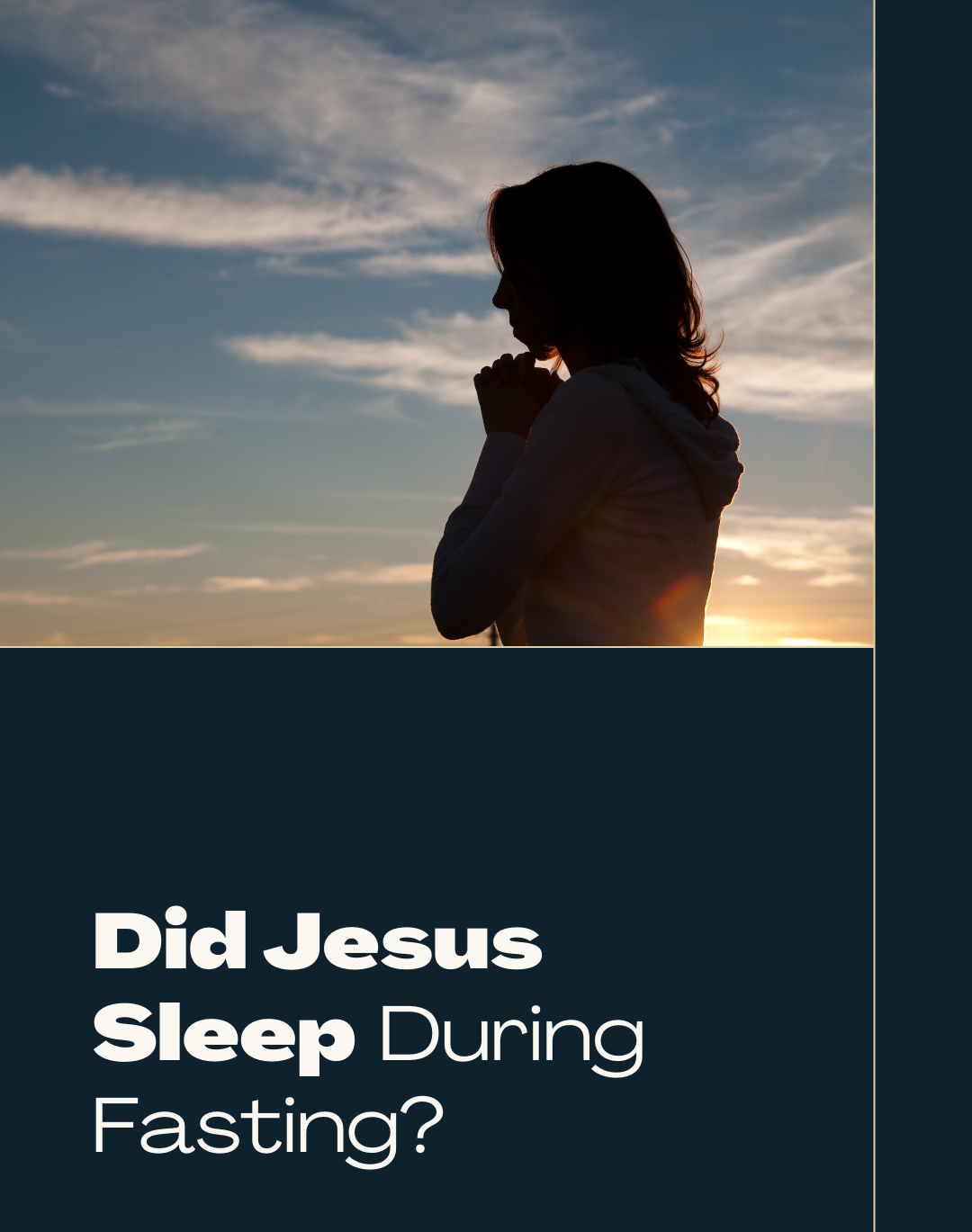Introduction: Did Jesus Sleep During Fasting? A Comprehensive Exploration
The act of fasting is significant in various religious traditions, including Christianity, where it serves as a means of spiritual growth, self-discipline, and communion with God. One of the most notable instances of fasting in the New Testament is the 40 days Jesus spent fasting in the wilderness, immediately following His baptism. A question often raised in this context is: Did Jesus sleep during fasting? This article seeks to explore the concept of fasting, the implications of sleep during fasting, and what the Bible and Christian traditions reveal about Jesus’ experience.
Understanding Fasting in the Biblical Context
Definition of Fasting
Fasting is typically defined as the voluntary abstention from food (and sometimes drink) for a designated period. In the biblical context, fasting is often associated with prayer, repentance, mourning, and seeking guidance from God. It serves as a means to humble oneself before the Lord and to focus on spiritual rather than physical needs.
Types of Fasting
- Absolute Fasting: Complete abstention from food and water.
- Partial Fasting: Involves restricting certain foods or meals.
- Intermittent Fasting: Alternating periods of eating and fasting.
- Corporate Fasting: A communal act, often done during specific religious observances.
Biblical Instances of Fasting
Fasting is prevalent throughout the Bible. Notable examples include:
- Moses: Fasted for 40 days on Mount Sinai (Exodus 34:28).
- David: Fasted during times of mourning (2 Samuel 12:16).
- Esther: Called for a fast among the Jews for divine intervention (Esther 4:16).
- Jesus: Fasted for 40 days and nights before beginning His public ministry (Matthew 4:1-2).
The Wilderness Experience of Jesus

Context of Jesus’ Fast
Immediately after His baptism, Jesus was led into the wilderness by the Holy Spirit to fast and pray. This period lasted for 40 days and nights, culminating in a series of temptations by Satan (Matthew 4:1-11; Luke 4:1-13).
The Nature of Jesus’ Fast
The Bible specifies that Jesus did not eat during this time, but it does not explicitly mention whether He slept. The implications of this silence raise interesting questions about the nature of fasting and the human experience of Jesus.
The Question of Sleep During Fasting
Human Needs During Fasting
Fasting, especially for extended periods like 40 days, naturally leads to physical exhaustion. The human body requires sleep for recovery and functioning, even when not consuming food. Understanding whether Jesus slept during His fast involves examining:
- Physiological Needs: Sleep is essential for maintaining physical health, and prolonged wakefulness can lead to various issues, including impaired cognitive function and physical weakness.
- Spiritual Focus: Fasting is intended to heighten spiritual awareness. Sleep, in this sense, could be seen as a distraction from the purpose of fasting.
Biblical Insights on Sleep and Fasting
The Bible does not provide a direct answer to whether Jesus slept during His 40 days of fasting. However, several scriptural insights can help illuminate this question:
- Jesus’ Humanity: Jesus is recognized as both fully divine and fully human (John 1:14). His humanity implies that He experienced the same physical needs as any person, including the need for sleep.
- Examples of Sleep in Scripture: Throughout the Gospels, Jesus is depicted as needing rest. For instance, in Mark 4:38, He sleeps in a boat during a storm, demonstrating His human need for rest.
- Spiritual Intent vs. Physical Needs: While fasting involves denying physical needs, it does not necessarily mean that one must forego sleep. Jesus’ fast may have included sleep, allowing Him to fulfill both His spiritual and physical needs.
Theological Implications of Sleep During Fasting
Spiritual Discipline
Fasting is a discipline intended to deepen one’s relationship with God. The need for sleep does not diminish this discipline but rather reflects the holistic nature of human existence. Balancing physical needs with spiritual pursuits is essential for effective fasting.
Understanding Jesus’ Experience
If Jesus did sleep during His fasting, it would illustrate His complete identification with humanity. It emphasizes that spiritual strength can coexist with physical limitations. This duality is crucial for understanding the nature of Christ and His ministry.
The Role of the Holy Spirit
Empowerment for Fasting
Jesus’ fast was initiated and sustained by the Holy Spirit. The Spirit’s role in guiding Jesus into the wilderness signifies that spiritual endeavors, including fasting, are empowered by divine assistance.
Spiritual Warfare
The wilderness experience also serves as a backdrop for spiritual warfare. The temptations Jesus faced were direct challenges to His identity and mission. This context suggests that sleep could be part of a broader strategy for spiritual preparedness.
Practical Insights for Believers
Fasting and Rest
For modern believers engaging in fasting, the example of Jesus encourages a balanced approach. Here are some practical insights:
- Listen to Your Body: Recognizing the physical demands of fasting is vital. Adequate sleep can enhance spiritual focus and overall health.
- Maintain Spiritual Intent: Sleep should not detract from the spiritual goals of fasting. Intentional prayer and meditation can accompany rest, allowing believers to maintain a connection with God.
- Holistic Approach: Fasting should encompass the whole person—body, mind, and spirit. Integrating rest into fasting can enhance the experience and yield deeper spiritual insights.
Conclusion
The question of whether Jesus slept during His fasting period in the wilderness may not have a definitive answer in the biblical text. However, through the exploration of various dimensions—physiological needs, biblical insights, theological implications, and practical advice for modern believers—we can draw meaningful conclusions.
Jesus’ experience in the wilderness serves as a profound model for understanding the balance between physical needs and spiritual pursuits. The act of fasting is not merely about abstaining from food but encompasses the entirety of the human experience, including the need for rest.
Ultimately, the focus should remain on the purpose of fasting: drawing closer to God, seeking His guidance, and strengthening one’s faith. Whether or not Jesus slept during His fast, His example invites believers to embrace both their spiritual and physical realities as they engage in the transformative practice of fasting.
